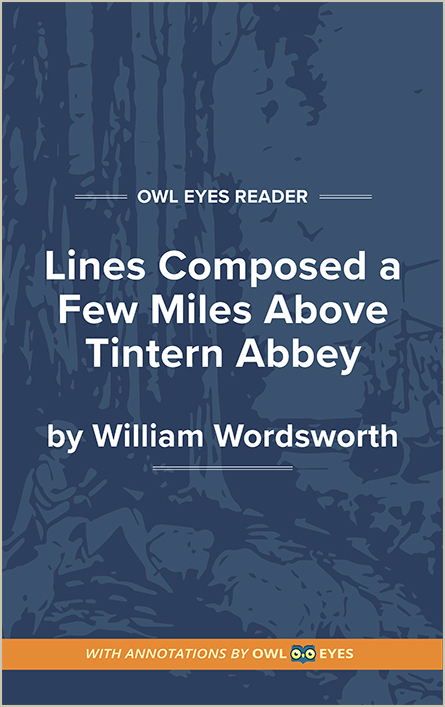Analysis Pages
Metaphor in Lines Composed a Few Miles Above Tintern Abbey
Metaphors and Similes: In order to demonstrate how his relationship with nature changes as he grows older, Wordsworth employs various metaphors and similes. As a child, he bounded through nature with youthful vitality, like a small deer. Now, five years later, he is much less energetic and youthful. Instead, nature is like an anchor, a nurse, and a guardian. It possesses a spirit that moves through the world and through his consciousness. Although his connection with nature is less visceral than it was in his youth, it is nevertheless much more profound and spiritual.
Metaphor Examples in Lines Composed a Few Miles Above Tintern Abbey:
Lines Written a Few Miles above Tintern Abbey, on Revisiting the Banks of the Wye during a Tour, July 13, 1798
🔒"Shall be a mansion for all lovely forms,..." See in text (Lines Written a Few Miles above Tintern Abbey, on Revisiting the Banks of the Wye during a Tour, July 13, 1798)
"The anchor of my purest thoughts, the nurse, The guide, the guardian of my heart, and soul Of all my moral being...." See in text (Lines Written a Few Miles above Tintern Abbey, on Revisiting the Banks of the Wye during a Tour, July 13, 1798)
"Of vagrant dwellers in the houseless woods, Or of some hermit's cave, where by his fire The hermit sits alone...." See in text (Lines Written a Few Miles above Tintern Abbey, on Revisiting the Banks of the Wye during a Tour, July 13, 1798)

